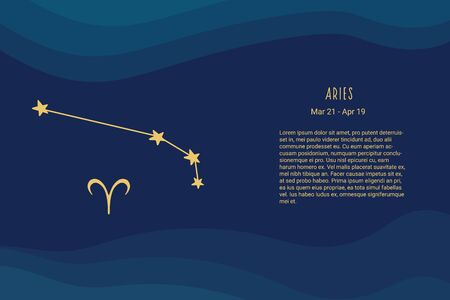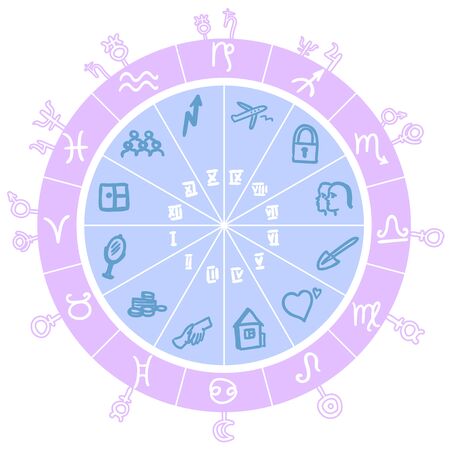Introduction to Rashi and Importance of Auspicious Dates
In Indian culture, the concept of “Rashi” or Zodiac Sign plays a pivotal role in shaping our daily lives, relationships, and major life decisions. There are twelve Rashis in Vedic astrology—Mesh (Aries), Vrishabh (Taurus), Mithun (Gemini), Kark (Cancer), Singh (Leo), Kanya (Virgo), Tula (Libra), Vrischik (Scorpio), Dhanu (Sagittarius), Makar (Capricorn), Kumbh (Aquarius), and Meen (Pisces). Each Rashi is associated with specific planetary influences that are believed to affect personality traits, compatibility, and even the outcomes of important events. In India, timing is everything—whether it’s planning a wedding, starting a new business, purchasing a home, or even naming a newborn. Families often consult their family pandit or astrologer to select “Shubh Muhurat,” which means the most auspicious time as per one’s Rashi and planetary positions. Choosing auspicious dates is not just tradition—it is deeply woven into the fabric of Indian society, symbolising hope for prosperity, harmony, and lasting success. Just as every relationship needs the right moment to blossom, every milestone in life seeks that perfect timing, making the knowledge of auspicious and inauspicious dates an invaluable guide for love and life’s big decisions.
2. Auspicious Dates for Each Rashi
When it comes to planning significant milestones in life—such as marriage (shaadi), griha pravesh (housewarming), or embarking on a new career—choosing an auspicious date (shubh muhurat) is considered essential in Indian culture. Each Rashi, or zodiac sign, has its own set of favourable periods that are believed to bring success and happiness. Consulting these dates can help couples find harmony, families build strong foundations, and individuals take the right step forward in their journey.
Favourable Periods Based on Rashi
The table below highlights the most auspicious months and recommended events for each Rashi, aligning with traditional Vedic astrology:
| Rashi (Zodiac Sign) | Most Auspicious Months | Ideal Events |
|---|---|---|
| Mesha (Aries) | April, August, December | Starting new ventures, Marriage |
| Vrishabha (Taurus) | May, September, November | Griha Pravesh, Engagements |
| Mithuna (Gemini) | June, October, January | Job Change, Business Launch |
| Karka (Cancer) | July, February, March | Marriage, Property Purchase |
| Simha (Leo) | August, December, April | Career Growth, Housewarming |
| Kanya (Virgo) | September, May, July | New Job, Spiritual Initiatives |
| Tula (Libra) | October, January, June | Marriage, Partnerships |
| Vrischika (Scorpio) | November, March, August | Business Investments, Engagements |
| Dhanus (Sagittarius) | December, April, September | Pilgrimage Start, Education Initiatives |
| Makar (Capricorn) | January, July, November | Court Cases Resolution, Property Deals |
| Kumbha (Aquarius) | February, May, October | Career Opportunities, Marriages |
| Meena (Pisces) | March, June, December | Engagements, Spiritual Ceremonies |
Cultural Nuances and Local Practices
Bharatiya families often consult trusted pandits or astrologers before finalising important dates. In many regions—from Mumbai to Chennai and Delhi to Kolkata—the practice of matching horoscopes and identifying shubh muhurat is seen as a way to invite Lakshmi’s blessings into one’s life. It is also common to avoid certain days like Amavasya or Rahu Kalam while selecting auspicious dates.
Your Love & Life Journey Starts Here!
If you’re seeking the perfect time for your shaadi or a fresh start in your career or home life according to your Rashi—and wish to ensure compatibility with your partner’s stars—these guidelines serve as a beautiful starting point. Remember: when hearts and stars align on a shubh date, every new beginning becomes truly special.

3. Inauspicious Dates and Dos and Donts
Understanding Inauspicious Dates According to Rashi
While planning significant life events—be it a wedding, engagement, housewarming (Griha Pravesh), or starting a new business—Hindu families in India pay close attention to inauspicious dates as per their Rashi (zodiac sign). These are periods when the planetary positions are believed to bring obstacles, delay, or negative energy into one’s life. Consulting a knowledgeable pandit or astrologer is common practice before finalizing any major event, as they help identify these “bad” dates based on your birth chart.
Common Inauspicious Timings: Rahu Kaal and Others
Rahu Kaal
One of the most widely recognized inauspicious periods in Indian astrology is Rahu Kaal. Occurring daily for about 90 minutes, Rahu Kaal is considered unfavorable for initiating any new work or auspicious ceremonies. The exact timing changes every day and is calculated based on sunrise. For instance, if you are planning to propose, register your marriage, or even sign important documents, it is best to avoid this period, irrespective of your Rashi.
Other Malefic Periods
Besides Rahu Kaal, Yamaganda and Gulika Kaal are also regarded as inauspicious for starting anything new. Additionally, certain Tithis (lunar days) such as Amavasya (new moon) and Ashtami are considered less favorable across most Rashis. For love birds seeking a Shubh Muhurat for engagement or marriage, these dates should be strictly avoided as per tradition.
Dos and Donts During Inauspicious Periods
What Not To Do:
- Avoid commencing new relationships or making marriage proposals during known inauspicious timings.
- Do not schedule major financial transactions or property purchases.
- Refrain from moving into a new house or starting construction activities.
What You Can Do:
- Focus on planning and preparation rather than execution.
- Engage in spiritual activities like puja, chanting mantras, or charity for positive energy.
In Indian culture, aligning your actions with cosmic rhythms is seen as an act of respect toward tradition and the universe’s flow. By avoiding inauspicious timings according to your Rashi and following these dos and donts, you enhance the harmony and success of important milestones in your personal journey—especially those involving love and long-term partnerships.
4. Cultural Customs and Common Rituals
In India, the selection of auspicious and inauspicious dates as per Rashi (Zodiac Signs) is deeply intertwined with rich cultural customs and spiritual rituals. Families often seek guidance from Pandits (priests or astrologers) to ensure that important events like marriages, engagements, housewarmings, and business ventures are aligned with favourable planetary positions. The consultation process involves detailed astrological readings based on the individual’s Rashi, Nakshatra (birth star), and the current planetary transits.
Consulting Pandits for Auspicious Dates
Pandits play a pivotal role in guiding families towards dates that promise prosperity and harmony. By analysing horoscopes and using traditional astrological charts, they suggest Muhurat—auspicious timings—for various ceremonies. This practice ensures that rituals are performed when cosmic energies are most supportive for success and well-being.
The Role of Panchang in Date Selection
Panchang is an ancient Hindu calendar that details tithi (lunar day), vaar (day), nakshatra (star), yoga, and karan. These five elements are crucial in determining Shubh Muhurat (auspicious moments). Families refer to the Panchang to avoid Amavasya (new moon), Rahu Kaal (inauspicious time), and other periods considered less favourable according to their Rashi.
| Element | Description | Significance in Date Selection |
|---|---|---|
| Tithi | Lunar Day | Determines suitable days for rituals based on waxing or waning moon |
| Nakshatra | Constellation/Star | Each Rashi is associated with specific Nakshatras influencing events |
| Rahu Kaal | Period ruled by Rahu planet | Avoided for initiating new activities due to negative energy |
| Muhurat | Auspicious Timing | Chosen based on combined analysis for maximum benefit |
Puja and Rituals to Enhance Positive Energies
On selected auspicious dates, families perform special pujas (prayer ceremonies) to invoke blessings from deities and seek protection against malefic influences. Common rituals include Ganesh Puja for new beginnings, Graha Shanti for planetary peace, and Satyanarayan Puja for prosperity. Offerings such as flowers, sweets, coconut, and incense are made as part of these traditions.
Common Rituals According to Zodiac Signs:
- Mesha (Aries): Mangal Puja for Mars’ blessings on Tuesdays
- Kanya (Virgo): Budh Puja on Wednesdays to enhance intellect and communication
- Tula (Libra): Shukra Puja on Fridays for marital harmony and wealth
- Kumbha (Aquarius): Saturn-related rituals for stability on Saturdays
Cultural Relevance Across India:
These customs not only foster positive energies but also strengthen family bonds, reflecting the importance of tradition in Indian society. Whether it’s seeking guidance from a trusted family Pandit or performing age-old pujas, every ritual is believed to align individuals with cosmic rhythms—ensuring love, happiness, and success in all endeavours.
5. Love Compatibility: Timing Matters
The Power of Auspicious Timing in Relationships
In Indian culture, the influence of Rashi (Zodiac Signs) goes beyond just personality traits—it plays a pivotal role in shaping romantic prospects and marital harmony. Choosing the right date, as per your Rashi, can be a game-changer for couples planning to take their relationship to the next level. When two hearts are aligned with cosmic energies on an auspicious day, it is believed to strengthen the bond, promote understanding, and bring long-term happiness.
How the Right Date Can Enhance Love
Selecting an auspicious date for important milestones—like the first proposal, engagement, or wedding—can infuse positivity into the relationship. According to Vedic astrology, each Rashi has specific days that are considered favourable for love-related events. For example, Vrishabha (Taurus) natives may find Fridays especially beneficial, while Karka (Cancer) might experience deeper emotional connection on Mondays. By consulting a knowledgeable astrologer or using a Panchang calendar, couples can identify dates when planetary positions support romance and togetherness.
Risks of Inauspicious Dates
On the other hand, starting a new phase of your love life on an inauspicious date may invite misunderstandings or obstacles. Many in India avoid significant decisions during Rahu Kalam or periods when Shani is unfavourably placed for their Rashi. These times are traditionally linked with delays, miscommunications, or emotional turbulence, which can affect even well-matched couples.
Tips for Couples: Making Your Union Stronger
- Consult with elders or astrologers before finalising any important romantic occasion.
- Check your compatibility chart (Kundali Milan) along with finding an auspicious date for engagements and weddings.
- Respect each other’s beliefs and family traditions regarding timings—it builds trust and mutual respect.
- If you miss an auspicious window, compensate with positive rituals like Griha Shanti pooja or visiting a temple together.
Remember, while cosmic timing sets the stage, true love is nurtured by commitment and care. However, aligning your special moments with your Rashis favourable dates can add that extra blessing from the stars—giving your relationship a beautiful start as per Indian tradition.
6. Modern Trends: Balancing Tradition with Practicality
In contemporary India, the influence of Rashi-based auspicious and inauspicious dates continues to shape many important life decisions, especially those related to love and marriage. However, today’s generation is finding creative ways to balance age-old wisdom with modern lifestyles. Many young couples value the guidance of elders and astrologers, but they also have to consider work schedules, travel plans, and even global time zones when planning their big days or special occasions. It’s common for families to consult a pandit for the most auspicious muhurat, only to adjust the final date based on everyone’s availability. This blending of tradition and practicality highlights a uniquely Indian approach—respecting one’s roots while embracing the realities of a fast-paced world. Youngsters often turn to online astrology platforms or mobile apps to check lucky dates according to their Rashi, making ancient knowledge more accessible and adaptable than ever before. Ultimately, lovebirds are discovering that while planetary alignments are important, mutual understanding and flexibility are just as vital for lasting happiness. By honouring both astrological advice and practical needs, today’s generation is writing new rules for auspicious beginnings—ones that harmonise heart, heritage, and modern aspirations.


